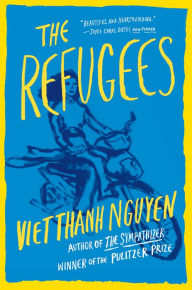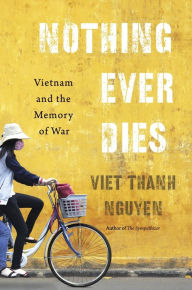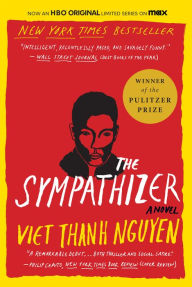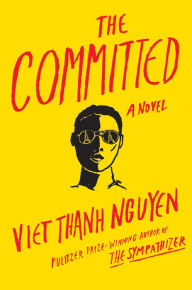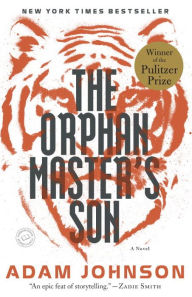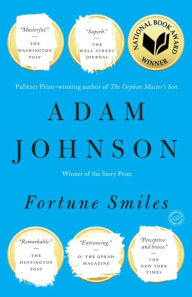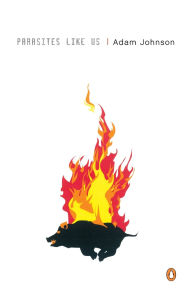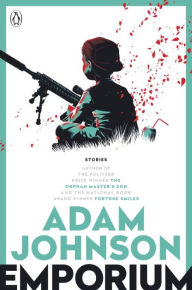In this LitStack Rec, we recommend two amazing works: The Refugees is a broad look at the nuances of displacement and belonging, and The Orphan Master’s Son is a novel that won the Pulitzer Prize.
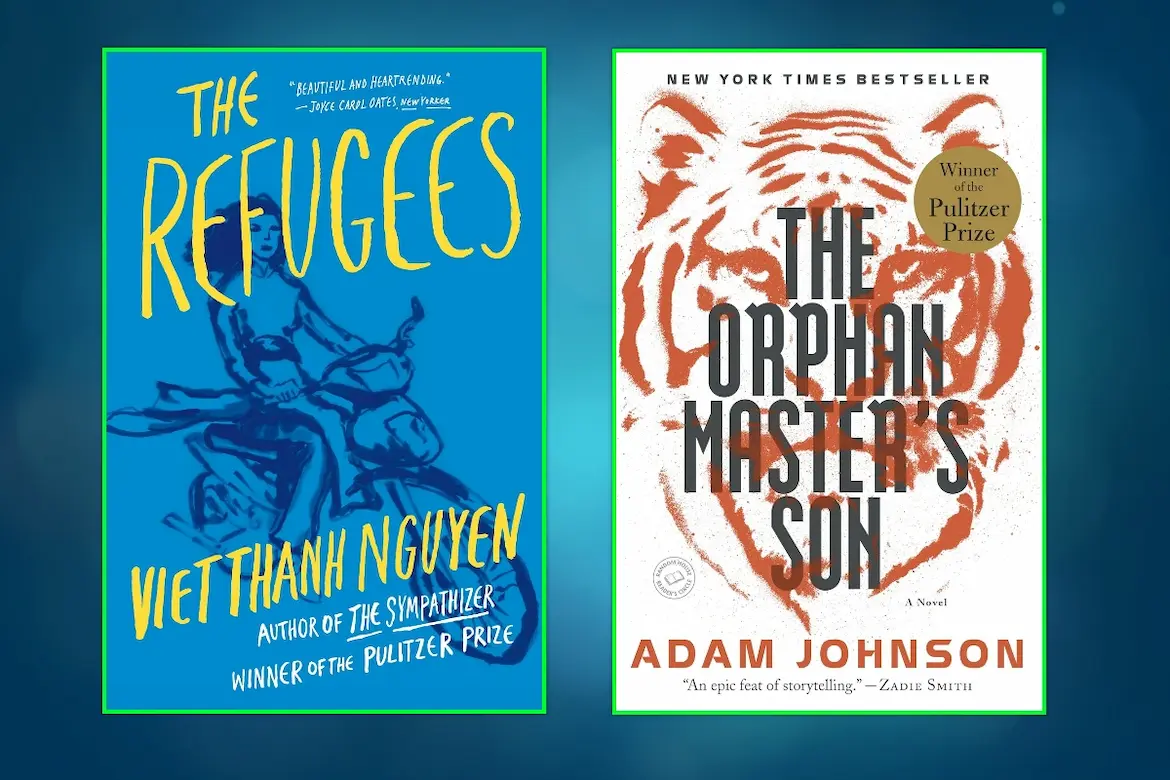
In This LitStack Rec:
The Refugees: Stories, by Viet Thanh Nguyen
If you’re a fan of The Sympathizer, the debut novel by Viet Thanh Nguyen that won the Pulitzer Prize in 2016, you’ll find much of what you loved in the author’s second book, a collection of short stories. Where The Sympathizer explores the effects of the Vietnamese War and the experience of refugees’ displacement through the taut voice of its unnamed narrator, the stories in The Refugees is a broader look at the nuances of displacement and belonging.
While the characters in these stories appear to lead quieter lives than The Sympathizer’s unnamed double-agent, the conflict for these characters is no less powerful. Nguyen’s obsessions—identity, family loyalty, dislocation, memory—drive these nine stories.
- Memories of Vietnam and the ghost of her brother haunt a young woman who aptly earns her living as a ghostwriter.
- A boy and his parents, living in 1970s San Jose and running a market, grapple with the change that confronts them when a family friend pressures them to donate funds to fight the Communists in Vietnam.
- A new arrival in San Francisco is sponsored by a gay couple, and finds his new life has a startling openness and freedom. Each story here shimmers with Nguyen’s emotional and political insights in prose that is precise, vivid, and elegiac.
- In the opening story, “Black-Eyed Women,” the sister who’s haunted by her brother’s ghost says to him, “Looking back…I could see that we had passed our youth in a haunted country.”
The tensions between American-born and native Vietnamese come into contrast, too. In one of the most striking stories, “Fatherland,” an eldest daughter named Phong, whose father left Vietnam for the U.S., discovers he had begun a new family there, and given his three children the same names as his children back in Vietnam. When her eponymous half-sister comes to visit in Saigon, she appears to be the ideal of American success, spending money on elaborate dinners, gifts, and outings for her second family. Except the American Phuong has endowed herself with a foreign name, Vivien:
Phuong knew instantly why her sister had taken upon herself a foreign name, and whose name it must have been: Vivien Leigh, star of Gone With the Wind, her father’s favorite film, as he had once told her in passing. Phuong had seen the film on a pirated videotape, and was seduced immediately by the glamour, beauty, and sadness of Scarlett O’Hara, heroine and embodiment of the doomed South. Was it too much to suppose that the ruined Confederacy, with its tragic sense of itself, bore more than a passing similarity to her father’s defeated southern Republic and its resentful remnants?
The analogy of the defeated southern Republic and GWTW’s doomed South, is among the many surprising and perceptive connections Nguyen makes in these stories. There are echoes of Jhumpa Lahiri’s stories, Interpreter of Maladies, another debut collection (that won the Pulitzer Prize in 2000), by a writer whose voice, like Nguyen’s, looks at the tensions between homeland, and the experience of diaspora, through portrayals of unforgettable characters.
—Lauren Alwan
About Viet Thanh Nguyen

Viet Thanh Nguyen’s novel The Sympathizer is a New York Times best seller and won the Pulitzer Prize for Fiction. Other honors include the Dayton Literary Peace Prize, the Edgar Award for Best First Novel from the Mystery Writers of America, the Andrew Carnegie Medal for Excellence in Fiction from the American Library Association, the First Novel Prize from the Center for Fiction, a Gold Medal in First Fiction from the California Book Awards, and the Asian/Pacific American Literature Award from the Asian/Pacific American Librarian Association.
His other books are Nothing Ever Dies: Vietnam and the Memory of War (a finalist for the National Book Award in nonfiction and the National Book Critics Circle Award in General Nonfiction) and Race and Resistance: Literature and Politics in Asian America. He is also the author of the bestselling short story collection, The Refugees. Most recently he has been the recipient of fellowships from the Guggenheim and MacArthur Foundations, and le Prix du meilleur livre étranger (Best Foreign Book in France), for The Sympathizer.
You can find and follow Viet Thanh Nguyen on his website, on Facebook, and on Instagram.
Other Titles By Viet Thanh Nguyen
The Orphan Master’s Son, by Adam Johnson
Winner of the 2013 Pulitzer Prize for Fiction, The Orphan Master’s Son tells the compelling tale of one John Doe struggling to survive in the midst of what is perhaps the world’s most rigid totalitarian regime: North Korea.
The Orphan Master’s Son follows the life of Pak Jun Do, whose absent mother was a singer and whose father runs the Long Tomorrows orphan camp; although Jun Do is not an orphan, he was treated no differently than the other boys (this being the stringent “no favoritism” that his father showed him – which he assumed was a great honor). Jun Do is not even the boy’s true name, but the name of one of the 114 Grand Martyrs of the Revolution, a group from which all orphan names are assigned.
Already we learn that orphans are not children whose parents have died, but children who had been abandoned by parents who simply could not care for them anymore, or who could not take them along to where they were going, or did not want to subject them to the only future they could envision for them. These children were then “adopted” by corporations or military units for extremely hazardous jobs that needed to be performed by highly expendable workers. This is the reality of life in North Korea. It is just one of the realities that we are awakened to in The Orphan Master’s Son.
Author Johnson freely acknowledges that his book is total fiction. Other than Kim Jong-Il, who makes a number of appearances in the book, none of the characters are real; even the Dear Leader’s words and actions are completely imagined. But with the vacuum of literary work coming from North Korea, Johnson felt compelled to write about the society that had gripped his imagination since reading Kang Chol-Hwan’s harrowing 2000 memoir, The Aquariums of Pyongyang. As he told the San Francisco Chronicle in an interview from April 20, 2013:
“If you express your own views, which is the duty of an artist, you go to the gulag. And that also means that no North Korean has read a book, as we think of a book – as a work of art whose job it is to illuminate the human experience – in three generations. They don’t even know what a book is there. So that’s one of the reasons I wrote my book, because it was this huge human mystery, and fiction hasn’t fleshed it out because there is no fiction.”
One of the hardest things for Western readers to understand about North Korea is that individual citizens do not see themselves – are not allowed to see themselves – as the main character in their own lives. There is only one main character in the drama that is North Korea, and that is the Dear Leader, formerly Kim Jong-Il (who died in December 2011), and now his son, Kim Jong-Un. Everyone else – EVERYONE else – is a secondary, supporting, expendable character. Not only is that all they are expected to be, trying to be anything else is punishable to the extreme. As one character in the book explains:
Where we are from, stories are factual. If a farmer is declared a music virtuoso by the state, everyone had better start calling him maestro. And secretly, he’d be wise to start practicing the piano. For us, the story is more important than the person. If a man and his story are in conflict, it is the man who must change.
To have an independent, even artistic viewpoint is to be an enemy of the state. And to want something that hasn’t already been given to you is a death sentence. Or worse.
“Let me tell you about the Dear Leader,” she said. “When he wants you to lose more, he gives you more to lose.”
“His grudge was with me, not you. What reason could he have to-“
“There,” she said. “There is the proof that you don’t understand any of this. The answer is that the Dear Leader doesn’t need reasons.”
It is against this backdrop that Jun Do’s story unfolds. The tale that Johnson weaves is not an ideological diatribe; it does not even pass judgment although the brutality, abuse and fear speak for themselves. Instead, we are given a deeply personal account of Jun Do as he moves from being a young man who does unspeakable things simply because he is told to do so, to a man who has unspeakable things done to him, but who also starts to listen and think about what is occurring around and within him.
It’s not that he sees himself as an instrument of change – Jun Do is no rebel – but he learns how to harbor his own thoughts and use the training that has come to him through years of forced brutality to survive an inexplicable experience that ends up changing him into an entirely different person – and teaches him the value of love and the honor that comes with sacrifice.
In the grand tradition of the Pulitzer Prize for Fiction, and in the footsteps of The Good Earth, The Grapes of Wrath, To Kill a Mockingbird, and Beloved, in The Orphan Master’s Son, Alan Johnson has given us a story that is deeply rooted in time and place, defining a people at their point in history. In allowing us to glimpse something that is so totally removed from our own experience and yet holds a recognizable honesty, he expands our knowledge of not only that time and place, but also of that which makes all of us, regardless of that which controls us and that which defines us, human. The Orphan Master’s Son is indeed worthy of its prize.
—Sharon Browning
About Adam Johnson

Adam Johnson is the author of Fortune Smiles, winner of the National Book Award and the Story Prize and a finalist for the Los Angeles Times Book Prize, and The Orphan Master’s Son, winner of the Pulitzer Prize, the Dayton Literary Peace Prize, and the California Book Award and a finalist for the National Book Critics Circle Award. Johnson’s other awards include a Guggenheim Fellowship, a Whiting Writers’ Award, a National Endowment for the Arts Fellowship, and a Stegner Fellowship; he was also a finalist for the New York Public Library’s Young Lions Award.
His previous books are Emporium, a short story collection, and the novel Parasites Like Us. Johnson teaches creative writing at Stanford University and lives in San Francisco with his wife and children. Source: Penguin Random House
Other Titles By Adam Johnson
Other LitStack Resources
Be sure and look at our other LitStack Recs for our recommendations on books you should read, as well as these reviews by Lauren Alwan.
As a Bookshop, BAM, Barnes & Noble, Audiobooks.com, Amazon, and Envato affiliate, LitStack may earn a commission at no cost to you when you purchase products through our affiliate links.
You can find and buy the books we recommend at the LitStack Bookshop on our list of LitStack Recs.



